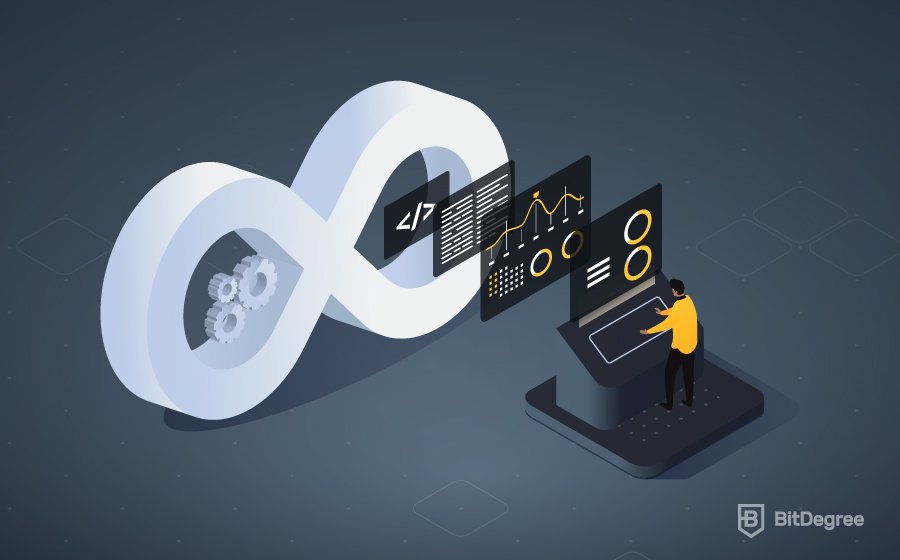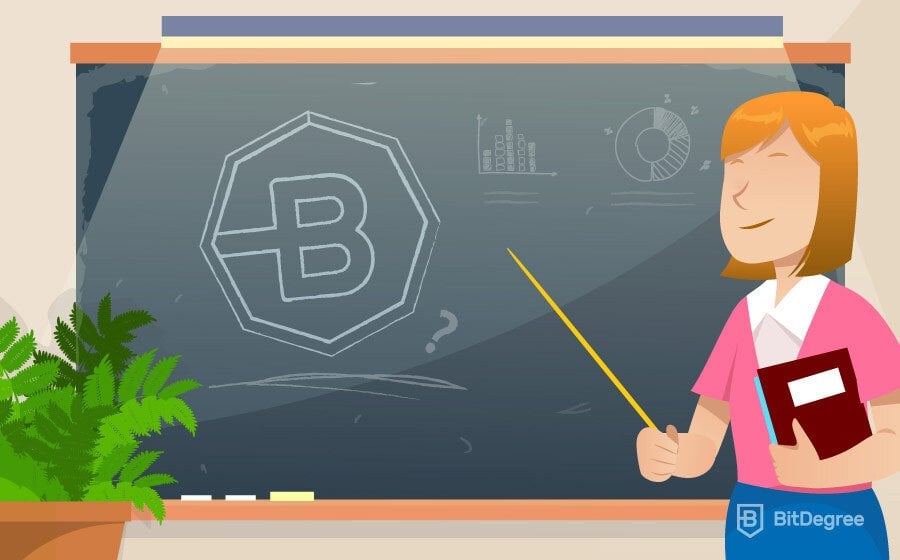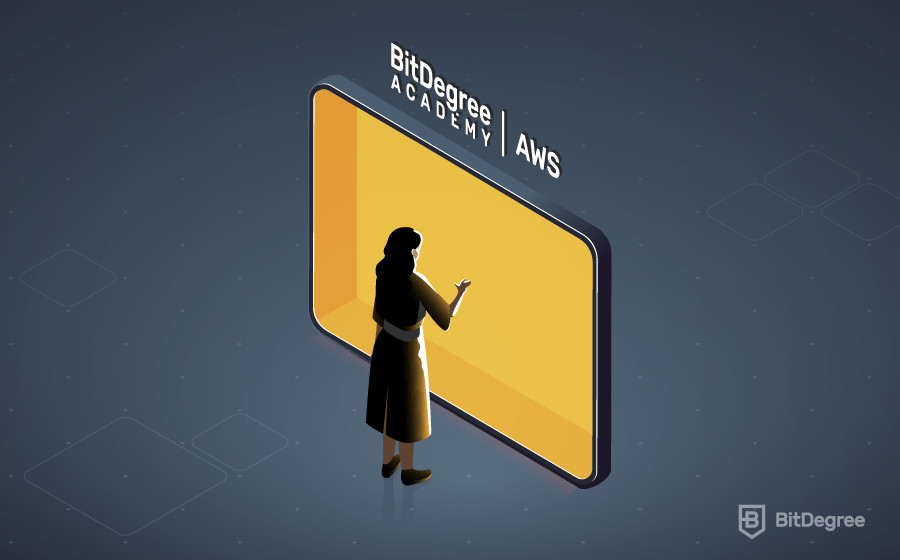What is DevOps?
The very name of DevOps arrives from ‘development’ and ‘operations’. As you might have probably guessed by now, it’s basically a combination of the two. Following the DevOps practices, the processes between these two teams can be integrated, improving the coordination and collaboration inside the organization.
By working more closely together, DevOps teams can provide better value to the company’s clients by creating more reliable products and services. Upon shaping their work around the primary business objectives, the specialists then aim to reach them in short release cycles. It’s also rather common for DevOps teams to follow the Agile methodology.
You might be thinking this doesn’t sound like a precise job description – and you’d be right. Overall, DevOps is a set of practices – in a lot of sources, you’ll find it called a software development framework or even a culture. Nevertheless, these practices need to be defined and implemented, which includes using a handful of tools and principles. In bigger or more tech-focused companies, these duties often fall to a designated specialist known as a DevOps engineer.
It’s important to understand you can’t really hire a freelance DevOps engineer or only employ one for a limited period of time and expect brilliant results. Remember – what is DevOps? It doesn’t end with finding and implementing solutions: they need to be maintained, tested, updated, changed, adapted, and fine-tuned.
DevOps Jobs and Responsibilities
So what does a DevOps engineer do in their nine-to-five? Here are a handful of their most common responsibilities in a company:
- Automation – identifying opportunities to reduce the workload and building software or plugins needed to automate repetitive tasks and help the team’s pace and efficiency skyrocket
- Release cycle optimization – recognizing which processes take up the most time and solving the issue by introducing more effective solutions
- Performance testing – constantly keeping an eye on the systems and ensuring they’re working safely, reliably, and efficiency
- Monitoring the production processes, provide constructive feedback, and define less time-consuming ways to locate and minimize errors
Naturally, the precise duties of a DevOps engineer depend on the organization, its needs, and team capabilities. It’s not unusual to also find yourself responsible for:
- Improving the main IT infrastructure
- Managing IT projects
- Maintaining security (SecDevOps)
Understanding CI/CD
One of the main things a DevOps engineer should be a master of is CI/CD. The name stands for Continuous Integration / Continuous Deployment – but if you’re a complete rookie, the terminology probably didn’t make the idea any clearer!
To put it simply, CI/CD is a method of implementing automation and constant monitoring in various stages of application development to gain speed and efficiency. Continuous integration, or CI, means every change in the code made by the developers is tested and merged in the team’s shared repository. Now, continuous deployment (CD) is related to the next stage: the changes in the repository are automatically released to production.
For a DevOps engineer, these practices are crucial: they help the team increase their speed, which is one of the primary goals of the DevOps approach. The less time gets wasted on repetitive tasks, the more of it can be invested in coming up with innovative solutions and products!
Training and Certifications
If you’re an IT graduate, you’re probably aware most university and college studies do not involve teaching DevOps. It’s still a relatively new approach, and formal education is known for its sloth-like pace of creating, approving, and offering new curricula.
If you’re looking to become a DevOps engineer, your best bet is to look into IT certifications – and there are quite a lot of those available on the market. Nevertheless, they can all the separated into two clear groups:
- Ones that focus on DevOps as an approach (AWS DevOps Engineer – Professional, Microsoft DevOps Engineer Expert, Google’s Professional Cloud DevOps Engineer)
- Ones that concentrate on specific DevOps tools (such as Kubernetes, Jenkins, Ansible, or Terraform)
Of course, mastering a single tool or system won’t be enough to get you interviews and offers for DevOps jobs just yet. If you’re interested in gaining a strong understanding of the DevOps culture, we’d recommend starting with a certification program that’s focused on exactly that and leave learning individual tools for later. Not only will you be able to select them a lot more consciously, but you’ll already know some DevOps-oriented tools cloud platforms have among their products (e.g., AWS offers CodePipeline, CodeStar, and more).
The AWS DevOps certification is one of the two Professional-tier ones the program offers. While you are not technically required to hold any lower-level certifications to take the exam, it is strongly recommended to go step by step with your AWS training: without a strong foundation and understanding of the Console, it’s a lot harder to dive into the more specific DevOps tools.
When it comes to AWS, the Foundational-level Cloud Practitioner certification is often called a must-take first step for any DevOps engineer. To make sure you obtain it quickly and stress-free, look into AWS CCP training by BitDegree Academy.
Financial Rewards, or the Almighty Dollar
There is no way of finishing this article without discussing the DevOps engineer salary and overall position in the current job market. Money might not make the world go round, but professionals do need to be compensated adequately for their expertise and hard work!
According to Glassdoor, the average DevOps engineer salary is $99,604 a year. PayScale provides a little lower number of $95,661 – however, their information is a bit less recently updated. Talent.com provides very different information: according to them, the average DevOps engineer salary is around $134,999.
We must also note Talent.com is using the data of 17,722 salaries here, as opposed to 2,130 (Glassdoor) and 3,214 (PayScale), so it might actually be a bit closer to the truth. On the other hand, it shouldn’t be too surprising that the level of salaries can vary a lot depending on your training, experience, exact responsibilities, and even the size and location of the company.
So – Is DevOps Engineer the Role for You?
If you’re a fan of quick, smooth, and efficient processes that allow companies to provide its customers with reliable and innovative products, DevOps might just be the culture you’d excel in. The more repetitive tasks can be eliminated and the better teams communicate, the more focus can be put on raising customer satisfaction and improving the company’s image.
If you aren’t sure where to start, we’d recommend you dive into the basics of cloud computing and modern technologies that no DevOps engineer can do without these days. Why not start with AWS training by BitDegree Academy?











